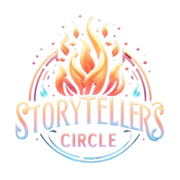When it comes to writing up a whole plot, never build a one-way bridge. Players are notorious for finding ways around your obstacles in creative and unique ways. Really, as a rule of thumb when GMing, I prefer a more "seat of my pants" kind of deal -- a design an overall plot, I break it up into smaller arcs (typically three), and then let the players dictate how they reach the final goal, regardless of whether the initial goal changes or not. Basically, my credo is that planning too much digs a hole you'll feel you have to commit to lest you feel as if you wasted your time, but plan just enough that you know the overall direction of the story.
Detail is a case by case affair. Some GMs prefer oodles of rich, lavish detail in a highly elaborate world. Others prefer to fill in gaps as they arise, and otherwise keep things simple until it's necessary. Again, I'm a seat-of-pants guy, so I like to have my players contribute to the story through means of asking questions and such, because really the story -- regardless of whatever it is -- is all about the players, and I feel they should have both a sense of agency and freedom to achieve whatever it is the heroes/villains/kawaiidesu squirrel-knights have set out to accomplish in whichever way is both most befitting for their characters and (most importantly) seems the most fun.
As far as settling conflicts between characters, I don't have much experience on the freeform side of things, but I would wager it comes down to character agreement or third-party arbitration. I favor mechanics however, and prefer dice/cards/whatever to determine the ultimate victor. If Sorceress Sarah decides to get into a purely melee duel with Barbarian Bob, let the dice fall where they may; odds are pretty skewed in Bob's favor, sure, but hey, you never know. You'll need to find whichever way works best for you in that regard, I suppose.
